Get Well And Septic Inspection in Teller County, CO
Well and septic inspection services help Teller County property owners identify issues with their systems, ensuring safe, functional setups for home or business projects.
Planning property improvements or preparing for a sale in Teller County, CO often involves ensuring that essential systems like wells and septic tanks are functioning properly. Well and septic inspection services provide valuable insights into the condition of these systems, helping property owners make informed decisions and avoid potential issues down the line. Whether you're considering a new installation, evaluating existing infrastructure, or simply maintaining the property's value, having access to experienced local contractors can make the process smoother and more reliable.
This page connects property owners with trusted local service providers who specialize in well and septic inspections tailored to the needs of Teller County residents. Comparing options from nearby experts can help you find the right solutions for your project, whether it's for a residential property, a vacation home, or land development. Keep reading to discover how local professionals can assist with your inspection needs and support your planning efforts.
- Well Inspection - needed when purchasing a home in neighborhoods around Woodland Park, CO, to ensure the well system is functioning properly.
- Septic System Inspection - essential before selling a property in Teller County, CO, to confirm the septic system is operating correctly.
- Drain Field Evaluation - required if experiencing slow drains or sewage backups in homes across the nearby mountain communities.
- Water Quality Testing - advised when there are concerns about water safety or taste issues in rural properties in the region.
- Septic Tank Pumping Inspection - recommended for older septic systems to prevent backups and ensure longevity in local residential areas.
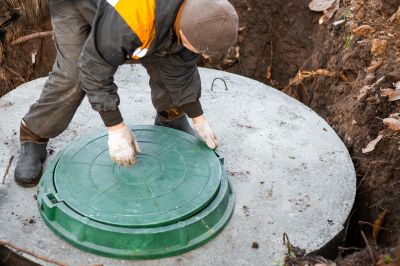
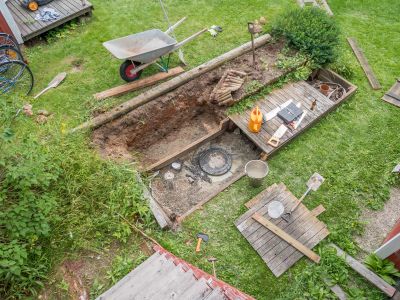
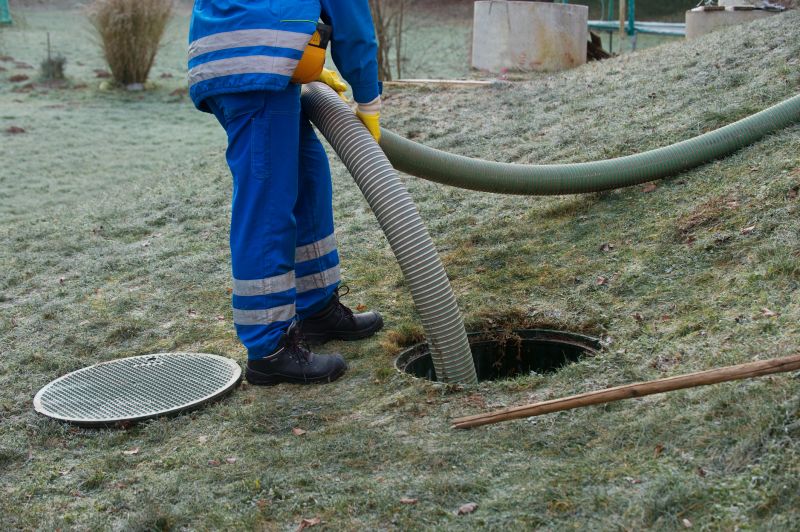
Well and septic inspection services involve a thorough assessment of a property's water supply and waste management systems. When a homeowner is considering purchasing a property, these inspections help identify any existing issues with the well or septic system that could lead to costly repairs or health concerns in the future. Licensed service providers evaluate the condition of the well pump, check for contamination, and ensure the water flow is adequate. For septic systems, the inspection typically includes examining the tank, drain field, and pipes to determine if there are signs of failure, clogging, or leakage. This process provides homeowners with a clear understanding of the current state of their water and waste systems, helping them make informed decisions.
These inspections are especially useful in areas where properties rely on private wells and septic systems instead of municipal water and sewer services. They help identify problems such as contaminated water sources, slow drainage, or system backups that could pose health risks or lead to environmental damage. Detecting these issues early allows homeowners to plan necessary repairs or upgrades before they escalate into more serious and costly problems. Well and septic inspections also play a vital role during property transactions, ensuring that buyers are aware of potential issues before completing a purchase, and helping sellers address problems beforehand to facilitate smoother sales.
Most commonly, well and septic inspection services are requested for residential properties, particularly in rural or semi-rural areas where municipal water and sewer services are not available. They are also valuable for vacation homes, rental properties, or properties with outdated systems that might need upgrades. Homeowners who notice changes in water quality, unpleasant odors, slow drains, or pooling around the septic tank may also seek these inspections to diagnose and resolve underlying issues. Regular inspections can help extend the lifespan of these systems, prevent unexpected failures, and maintain the safety and functionality of a property’s water and waste infrastructure.
By connecting with experienced service providers, homeowners can access comprehensive well and septic inspections tailored to their property’s needs. These professionals have the expertise to identify potential problems, provide recommendations for repairs or maintenance, and ensure systems are functioning properly. Whether preparing to buy a new home, maintaining an existing property, or addressing specific concerns, working with local contractors ensures that inspections are thorough and reliable. This proactive approach helps homeowners protect their investment and maintain a safe, functional water and waste management system.
The overview below groups typical Well And Septic Inspection projects into broad ranges so you can see how smaller, mid-sized, and larger jobs often compare in Teller County, CO.
In many markets, a large share of routine jobs stays in the lower and middle ranges, while only a smaller percentage of projects moves into the highest bands when the work is more complex or site conditions are harder than average.
Basic Inspection - typical costs range from $150 to $300 for standard well and septic inspections. Many routine inspections fall within this range, covering common systems and straightforward assessments.
Comprehensive Evaluation - more detailed inspections can cost between $300 and $600, especially for properties with complex systems or older installations. Fewer projects reach the upper end of this range.
Repairs and Maintenance - minor repairs or maintenance services usually cost between $250 and $600, depending on the scope of work needed to ensure proper system function.
Full System Replacement - larger, more complex projects like full well or septic system replacements can range from $3,000 to $10,000 or more, with most projects falling in the middle of this spectrum depending on the system size and site conditions.
Actual totals will depend on details like access to the work area, the scope of the project, and the materials selected, so use these as general starting points rather than exact figures.
Water Well Drilling - Well drilling projects require knowledge of subsurface conditions, drilling techniques, and site planning similar to well and septic inspections.
Septic System Installation - Installing new septic systems involves site assessment, soil testing, and understanding of underground utilities, aligning with inspection skills.
Underground Utility Locating - Locating and mapping underground utilities demands careful planning and specialized tools, comparable to septic system evaluations.
Drain Field Repair - Repair and maintenance of drain fields require inspection of underground components and soil conditions, paralleling septic system assessments.
Soil Testing and Site Evaluation - Soil analysis projects involve evaluating ground conditions, which is essential for septic system placement and inspection planning.
Water Quality Testing - Testing well water for contaminants involves sampling and analysis techniques similar to those used in well inspections.
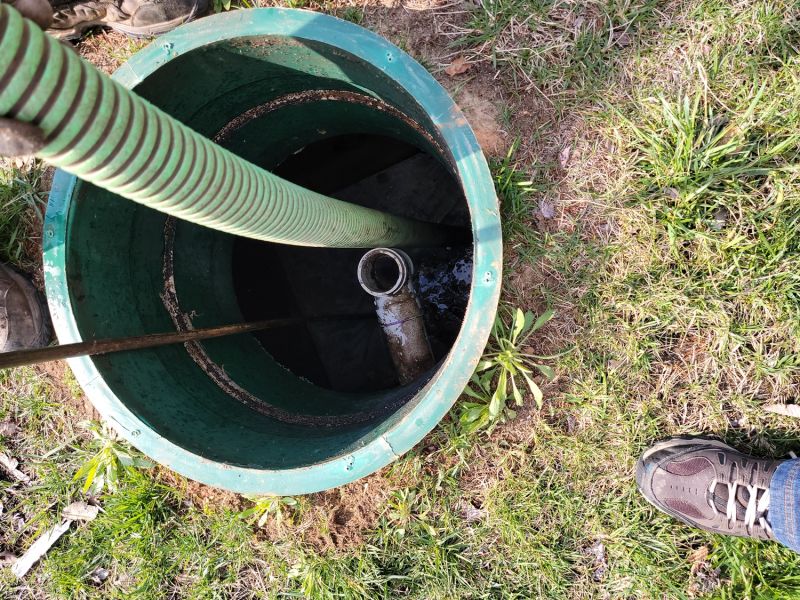
When choosing a service provider for well and septic inspections, it’s important to consider their experience with similar projects in the area. Local contractors who have a history of working on properties comparable to your home can often provide more reliable assessments, as they understand the specific conditions and common issues found in Teller County, CO, and nearby communities. Asking about their experience with well and septic systems, especially in similar terrain or property types, can help ensure they are familiar with the unique challenges that might arise during an inspection.
Clear, written expectations are essential for a smooth process. When evaluating potential service providers, look for those who can provide detailed descriptions of what their inspection includes, what areas they will assess, and what findings or reports you can expect to receive. This transparency helps prevent misunderstandings and ensures that everyone is aligned on the scope of work. Having well-documented expectations also makes it easier to compare different providers and determine which one offers the most comprehensive and clear approach to inspecting your well and septic systems.
Reputable references and effective communication are key indicators of a dependable service provider. Local contractors who can provide references from past clients, especially those who had similar inspections, can offer insights into their professionalism and reliability. Good communication-whether through prompt responses to inquiries or clear explanations of findings-fosters trust and confidence in the contractor’s ability to handle your project. While the site introduces homeowners to local options, it’s important to remember that these service providers handle the work directly, making thorough research and careful comparison vital steps in selecting the right partner for your well and septic inspection needs.
Property owners in Teller County, CO use Well And Septic Inspection services for practical projects around their homes and businesses. This guide focuses on everyday jobs and straightforward project options.
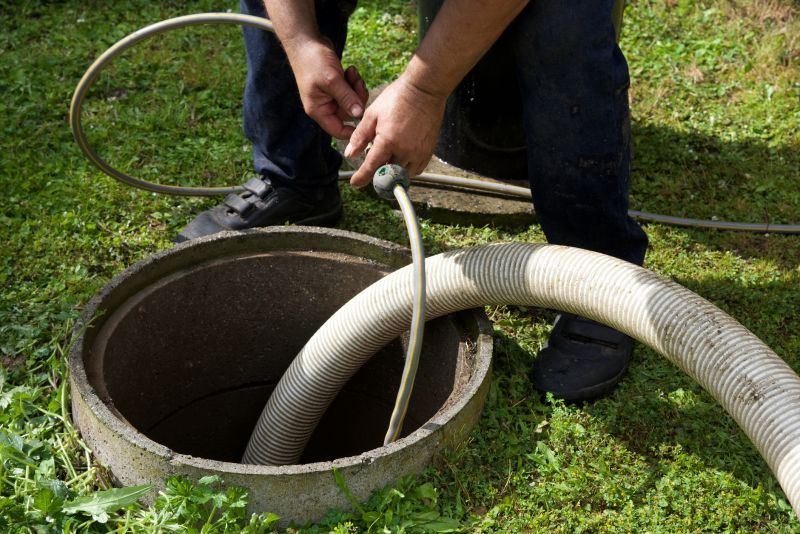
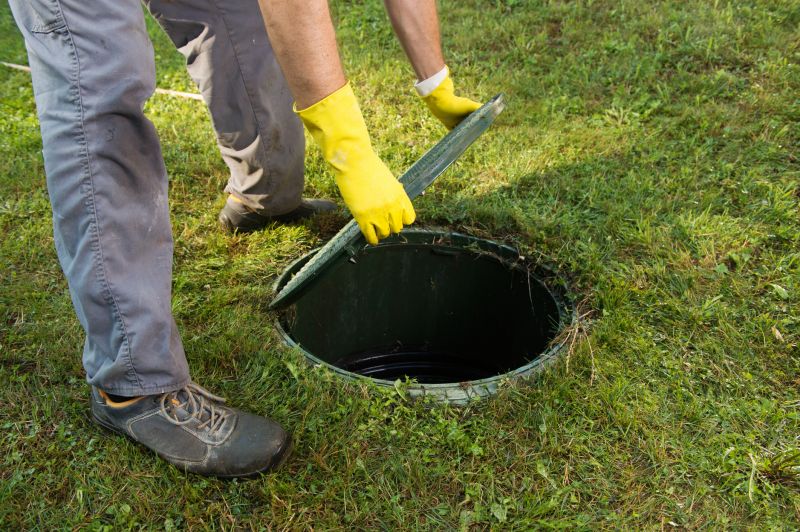
Well and septic inspection services are often needed when property owners in Teller County are preparing to buy or sell a home, ensuring the system is functioning properly before closing. Homeowners may also seek inspections if they notice signs of trouble, such as slow drains, unpleasant odors, or pooling water around their property. These routine checks help identify potential issues early, preventing costly repairs and ensuring the property’s septic and well systems are in good condition.
In addition, local contractors are frequently called upon for inspections after severe weather events or when there are concerns about water quality and system performance. Property owners who are updating or expanding their homes might also require inspections to confirm their existing systems can handle new demands. Connecting with experienced service providers can help ensure that well and septic systems meet safety and operational standards, providing peace of mind for homeowners in the area.
What is involved in a well and septic inspection? A professional inspection typically includes evaluating the condition of the well system, testing water quality, and assessing the septic system’s components and functionality to identify potential issues.
Why should I have a well and septic inspection before buying a property? An inspection helps identify any existing problems or potential risks with the water supply and waste management systems, supporting informed decision-making during the purchase process.
How do local contractors perform well and septic inspections? They examine the physical condition of the well and septic systems, perform necessary tests, and review maintenance records to ensure systems are functioning properly and meet safety standards.
What signs indicate a septic system may need inspection or repair? Signs include slow draining fixtures, unpleasant odors, lush or unusually green yard areas over the septic, or recurring backups, which suggest a professional inspection may be needed.
Can a well and septic inspection detect health risks? Yes, inspections often include water testing to identify contaminants or bacteria, helping to assess potential health concerns related to water quality and septic system integrity.
Septic System Inspection - Property owners can schedule inspections to ensure their septic systems are functioning properly before selling or purchasing a home.
Well Water Testing - Homeowners can have local contractors evaluate their well water quality for safety and compliance with health standards.
Routine Maintenance Checks - Regular inspections can help identify potential issues early, preventing costly repairs or system failures.
System Upgrade Assessments - Property owners planning renovations or expansions can consult service providers to determine if their current systems meet new demands.

If you are thinking about Well And Septic Inspection for a property in Teller County, CO, this guide is meant to help you understand the work, the typical project types, and how different options might fit your plans.
When you are ready, you can use the quote form on this page to share a few details about your project. From there, local pros can review the basics and respond with options that match what you have in mind.



